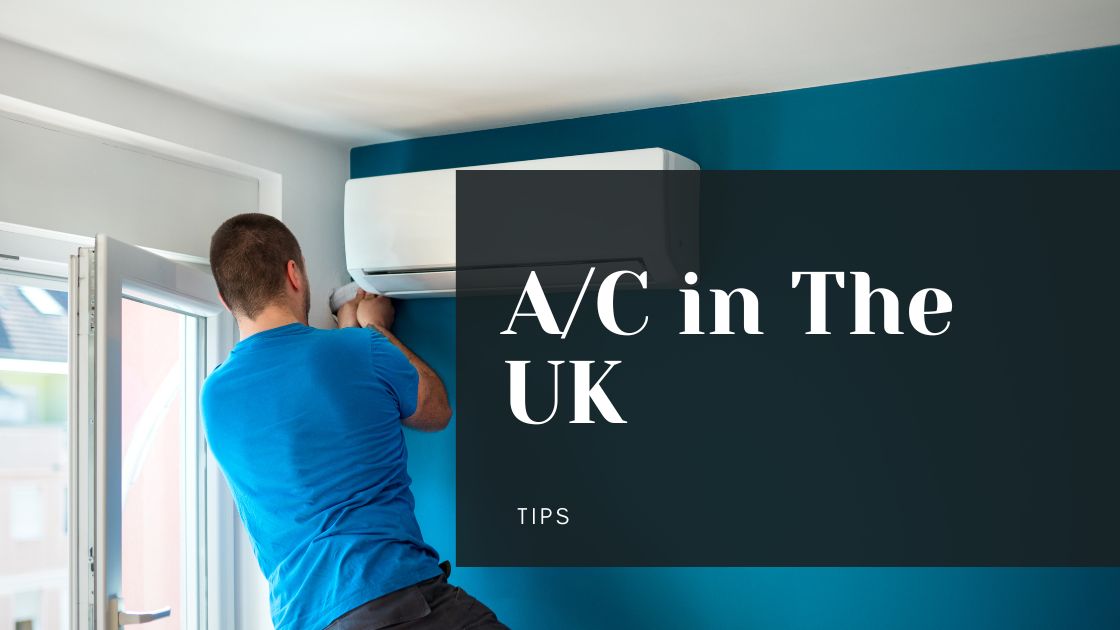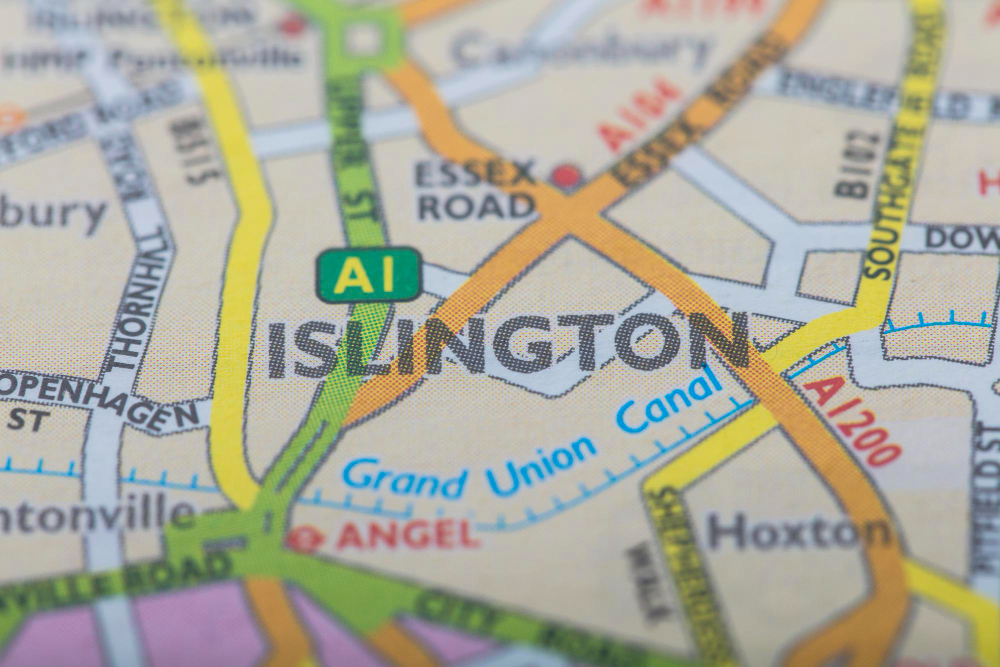Moving to the UK comes with its fair share of surprises – the charming accents, the obsession with tea, and the unpredictable weather! As a young mother who’s recently made the leap across the pond with my family, getting accustomed to the climate here has been an interesting journey.
One of the things that caught us off guard was the need for air conditioning – or A/C, as it’s commonly known. Now, you might be thinking, “A/C in the UK? But isn’t it always rainy and cool?” Well, that’s what I thought, too.
Indeed, British summers can be surprisingly warm, and with climate change, there’s an increasing number of heatwaves making their presence felt across the UK. Our first summer was a real eye-opener, with temperatures soaring into the high twenties and even thirties (Celsius, of course).
The lack of built-in A/C, which is a standard feature in many other countries, suddenly became quite noticeable. Portable fans quickly became our best friends as we sought to create our own makeshift cooling system while learning that many locals simply opened windows and used curtains to manage the heat.
Understanding the Climate in the UK
Alright, let’s chat about the climate in the UK. As a newbie here, I can tell you it’s been a bit of a learning curve to understand what to expect weather-wise. For starters, if you’re hoping for endless days of sunshine, well, you might be in for a surprise.
- Variable Temperatures. So, the word ‘mild’ gets thrown around a lot when people describe the UK climate, and to an extent, that’s fair. But ” mild ” can mean anything from “I just need a light jacket” to “Where on earth did I pack my woolly socks?” It’s not uncommon to experience a few seasons in a single day – you might start your morning with a bit of frost on the ground, only to end up shedding layers by lunchtime because the sun decided to grace us with its presence.
- Regional Differences. And then there’s the regional aspect. If you’ve friends in different parts of the UK, you might find yourselves comparing weather notes like you’re in entirely different countries. Up in the highlands of Scotland, you’ll want to keep your warm clothes handy a bit more often. Meanwhile, down in the South of England, you might actually get to enjoy a garden picnic without a jumper from time to time. It’s all about location, location, location.
- Rain and Overcast Skies. Now, onto the topic everyone loves to bring up: rain. Yes, it’s a frequent visitor here, and overcast days are pretty much part of the package. But it’s not as gloomy as it sounds. There’s something quite cosy about a drizzly afternoon, and the rain keeps everything lush and green. Plus, when the sun does pop out, it feels like a special treat. It’s like the whole country lights up, and suddenly, every park is full of families and the sound of kids playing.
The UK climate is all about being prepared. It’s grabbing your umbrella along with your sunglasses because, honestly, you just never know. It’s having a stash of layers at the ready because the temperature can flip on a dime. And it’s learning to love the unpredictability because it makes those moments of perfect weather feel all the more magical.
The Need for Air Conditioning in the UK
Since moving here with my family, I’ve found that the need for A/C is more real than you might expect. And I’m not just talking about those rare scorchers that have everyone talking about the weather more than usual. So, why would someone consider A/C in a place that’s famous for its cooler weather? Here’s why:
Rising Temperatures
Believe it or not, summers can get quite warm, particularly in the southeastern parts of the country. You know, not always the “let’s have a picnic and enjoy the breeze” kind of warm, but more like “why does it feel like we’re living in the sun?” kind of hot. And it’s not just a one-off; these warmer summers are becoming a bit of a trend.
Heatwaves
The UK has experienced unprecedented heatwaves in recent years, with temperatures soaring into the high 30s (Celsius). That’s not your typical British weather, is it? When the kiddos’ ice lollies are melting faster than they can eat them, you know it’s serious. And with climate change knocking on our door, these periods of intense heat might just become the norm.
Sticky Weather
Even when it’s not blazing hot, the humidity can make things rather uncomfortable, especially when you’re trying to get a toddler to nap! Picture this: you’ve got the fan going full blast, but all it’s doing is pushing around warm air. It’s like being stuck in a sauna you never signed up for. And let’s not even talk about trying to get a good night’s sleep when it feels like you’re wrapped in a wet blanket.
Types of Air Conditioning Systems Suitable for the UK
As you settle into your new home in the UK, you’ll quickly realise that the weather here can be a bit unpredictable, with those surprisingly warm summer days that can make you feel like you’ve been transported to the tropics. So, to keep your family comfortable throughout the year, you’ll consider investing in an air conditioning system.
Don’t worry, I’m not talking about those bulky, industrial-looking units you’ve seen in movies. Nowadays, various air conditioning systems that are stylish, efficient, and won’t break the bank are available. Let’s take a look at some of the most popular options for UK homes:
Split-Type Air Conditioning Systems
Split-type air conditioning systems are a great all-around choice for UK homes. They’re made up of two units: an indoor unit that blows cool air into your room and an outdoor unit that gets rid of the heat. Here’s why you might want to consider a split-type system:
- Energy Efficiency. These systems are designed to be energy efficient, which means you’ll save money on your electricity bills.
- Zoning Capabilities. If your home has different rooms that need to be cooled at different temperatures, split-type systems can handle that with no problem. You can control each unit independently, so no one has to suffer through a chilly bedroom or a sweltering living room.
- Installation Requirements. Unlike portable air conditioners, split-type systems require professional installation. This means there’s a bit of upfront cost involved, but it’s worth it for the long-term benefits.
- Maintenance. As with any appliance, regular maintenance is key to keeping your split-type system running smoothly. This usually involves cleaning or replacing filters and checking for any refrigerant leaks.
Portable Air Conditioners
If you’re looking for a more flexible option, portable air conditioners are a great choice. They’re small, lightweight, and have wheels, so you can easily move them from room to room as needed.
- Flexibility and Mobility. Whether you’re trying to keep the living room cool during the day or the bedroom comfortable at night, portable air conditioners can go wherever you need them.
- Cooling Capacity. Portable air conditioners are typically less powerful than split-type systems, so they may be less effective in larger spaces.
- Noise Levels. Some portable air conditioners can be quite noisy, which can be disruptive if you’re trying to sleep or watch TV.
Window Air Conditioners
For smaller rooms or rental properties, window air conditioners can be a simple and affordable solution. They’re installed directly into your window, so there’s no need for any extra wiring or ductwork.
- Space-Saving Design. Window air conditioners are compact and fit neatly into your window, leaving your floor space free for furniture, toys, or whatever else you need.
- Appearance. While they’ve come a long way in terms of design, window air conditioners aren’t exactly the most aesthetically pleasing appliances.
- Window Size. Before buying a window air conditioner, measure your windows to ensure the unit will fit properly.
Factors to Consider When Choosing A/C for Families
Whether you’re battling the occasional heatwave or just want a consistent indoor climate, choosing the right air conditioning (A/C) system is crucial. Let’s dive into what you need to keep in mind to ensure you and your little ones stay cool and comfortable.
Sizing and Cooling Capacity
It’s like picking out shoes for your kids; it has to be the perfect fit. An A/C that’s too small will have your unit running overtime without reaching that cool haven you desire. On the flip side, an oversized A/C is like a power-hungry giant, chomping through energy without the grace of efficiency.
To hit that sweet spot, you’ll need to consider the size of your space, the layout of your home, and how the British sun hits it throughout the day. It may be worth getting a professional to do a load calculation to determine the ideal unit size that will effectively manage the temperature without sending your bills sky-high.
Energy Efficiency and Cost
Here’s where it pays to be savvy. Air conditioning systems in the UK come with an energy efficiency rating, often shown as a Seasonal Energy Efficiency Ratio (SEER). The higher the SEER rating, the less electricity the unit will use to do its job. As mums, we’re always looking for ways to stretch the family budget, and opting for a unit with a high SEER rating can mean substantial savings on energy bills over time.
It’s about finding that balance between the initial cost of the system and the potential savings in the long run. Also, consider looking for models with features like programmable thermostats or inverter technology, as they can adapt energy use to the needs of your space, making them more energy-efficient.
You can learn more about energy and gas heating here >>
Installation and Maintenance Tips
If you’re uncomfortable with DIY projects or don’t have the time to install your A/C system yourself, it is best to hire a professional installer. Professional installers will have the experience and skills to get the job done quickly and correctly, and they will also be able to provide you with a warranty on their work. However, if you’re confident in your DIY skills and have the time to spare, you can save money by installing your A/C system yourself.
Here are some pros and cons for both approaches:
| Professional Installation | DIY Installation | |
| Cost | Higher upfront cost | Lower upfront cost |
| Complexity | More complex, requires specialised skills | Less complex, and can be done by a homeowner with basic DIY skills |
| Tools and Materials | Provided by the professional installer | Must be purchased by the homeowner |
| Time | Quicker, typically completed in one day | May take longer, depending on the homeowner’s skill level |
| Warranty | Typically covered by the installer | May not be covered by the manufacturer |
| Piece of mind | Professional installers have experience and are less likely to make mistakes | Homeowners may have to troubleshoot problems on their own |
Routine Maintenance For Your AC
Let’s talk AC maintenance—trust me, it’s a lifesaver, especially during those surprise heatwaves. So, first things first: regularly swapping out or cleaning your AC filters is a must to keep the air fresh and the system running smoothly. Then there’s the outdoor unit; keeping it clear of leaves and debris will save you a headache.










































































